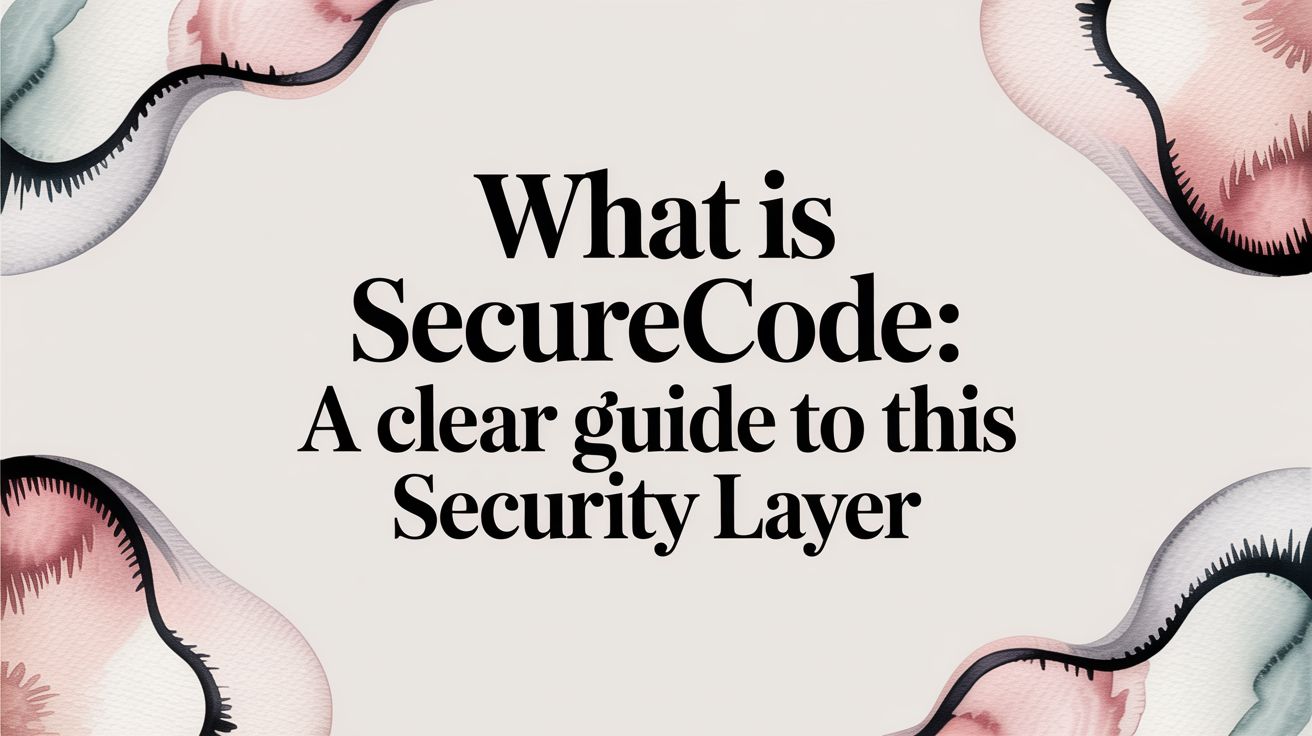
Being a business owner, you're likely no stranger to the challenges that can come your way. One such challenge that often leaves entrepreneurs scratching their heads is the matter of chargebacks.
These seemingly harmless transactions can become disputes and can quickly become a headache for businesses of all sizes. But worry not, because ChargePay is here to not only resolve your concerns but also offer expertise backed by solid data to assist business owners just like you.
Navigating the landscape of chargebacks might seem like uncharted territory, but with the right guidance, you can steer clear of potential pitfalls. This comprehensive guide is designed to be the compass that keeps you on track.
We've meticulously covered every conceivable angle of this topic, ensuring that by the time you're done reading, you'll have a firm grasp on what chargebacks are, how they can affect your business, and the steps you can take to mitigate their impact.
In the following sections, we'll break down the complexities and shed light on the potential consequences of chargebacks on businesses. Through a combination of reliable statistics and real-life examples, we'll illustrate the tangible implications that these disputes can bring about.
By the end of this guide, you'll not only understand the ins and outs of chargebacks but also possess a toolkit of strategies to prevent and manage them effectively.
If you are affected by chargebacks and do not how they might be hurting your business, you're in the right place. Let's continue reading to discover and equip yourself with the knowledge and insights you need to safeguard your business and its reputation.
Are Chargebacks Bad for Businesses? 4 Potential Concerns for Owners
When we're running a business, every dollar counts. So, let's talk about something that can hit our bottom line: chargebacks. These little guys might not seem like a big deal at first glance, but trust us, they can be a real headache.
1. Financial Losses
You know how important each sale is, right? Well, when a customer decides to go for a chargeback, it's like saying "We don't want to pay for this." That money we thought we had earned suddenly disappeared. Plus, on top of that, some banks slap us with chargeback fees. It's like a double whammy.
2. Reputational Damage
A customer has a problem with their purchase, and instead of talking to us, they go straight to their bank for a chargeback. Now, our business might get labeled as "unreliable" or "not customer-friendly." That's not the kind of reputation we want, right? A bad rep can scare away potential customers faster than we can say "chargeback."
3. Increased Operational Costs
More chargebacks could mean higher fees from payment processors. They see a high chargeback rate as a sign that our business might be risky. So, they hit us with bigger fees to cover their backs. And if we want to fight those chargebacks, guess what? We might need to spend even more money on legal stuff.
4. Potential Merchant Account Termination
Here's a nightmare scenario: if our chargeback rate goes through the roof, our payment processor could show us the door. No more credit card payments for us. Imagine losing customers just because we can't offer a simple payment option. Yikes.
We get it, stuff happens, and sometimes chargebacks are legit. But if they become a habit, our business could suffer. So, it's crucial to stay on top of customer concerns, provide clear terms, and make sure our customer service is top-notch. Because preventing chargebacks is way better than dealing with their aftermath.
Statistics: Unveiling the Impact Caused by Chargebacks
Chargebacks can have a significant impact on your business, both financially and in terms of reputation. Here are some eye-opening statistics that shed light on just how much chargebacks can affect your bottom line:
1. The Price Tag of Chargebacks
Dealing with a single chargeback doesn't just mean losing the product's value or the transaction amount. On average, a chargeback costs businesses around $200. This sum includes not only the actual cost of the product or service but also the chargeback fee itself and the valuable time your customer service team spends resolving the issue.
2. Erosion of Revenue
Chargebacks might seem like isolated incidents, but they can collectively chip away at your revenue. They can represent up to 1% of your total revenue, especially if you have a high chargeback rate. For any business, losing even this small percentage can translate into a notable financial setback.
3. Tarnishing Your Image
Chargebacks don't just hurt your finances; they also damage your reputation. When a customer experiences a chargeback, they're more likely to view your business negatively. These negative impressions can quickly spread through word of mouth, online reviews, and social media, leading to lost sales and customers.
4. Elevated Processing Costs
Dealing with chargebacks isn't just a matter of lost revenue. Payment processors can increase the fees they charge you if your business experiences a high number of chargebacks. This added financial burden can further strain your resources.
5. Looking at the Bigger Picture
Globally, the cost of chargebacks is predicted to skyrocket to a staggering $117.47 billion by 2023. Industries that rely heavily on credit card transactions, such as the travel industry, face a chargeback rate as high as 1.25%. In the eCommerce sector, the chargeback rate hovers around 0.89%.
6. Lengthy Resolution Time
The ramifications of chargebacks aren't limited to just the initial hit to your finances. On average, it takes a considerable 67 days to fully resolve a chargeback. This extended timeline means prolonged uncertainty and disruption to your business operations.
7. Unwanted Credit Score Impacts
While chargebacks themselves might not directly impact your business's credit score, the financial strain they cause can indirectly affect your creditworthiness. Difficulty in managing finances due to chargebacks can lead to credit-related challenges.
4 Real-life Examples: Learning from the Experiences of Others
Navigating the world of chargebacks as a business owner can be a daunting challenge. These real-life examples underscore the profound impact that chargebacks can have on businesses, serving as cautionary tales for us all.
Case 1
The Price of Knockoff Parts Several years ago, the owner found himself entangled in a dispute with a customer who alleged that we never delivered the parts they had ordered. This accusation led them to initiate a chargeback through Amex, seeking a refund for the purportedly undelivered items.
However, what made this situation particularly intricate was the fact that he had indeed provided the parts, albeit knockoff versions that were substantially cheaper than the authentic components they had rejected.
Regrettably, this chargeback translated into a financial setback of approximately $2,000. Despite presenting evidence to support our case, the chargeback process favored the customer, highlighting the challenges businesses can face when confronted with such situations.
Case 2
Unraveling Vendor Promises In more recent times, a vendor's misleading promises triggered a dispute over a transaction totaling $1,400. The vendor's initial assurances did not align with the delivered product, prompting me to seek a chargeback as a means of redress.
While he possessed documented proof of the vendor's admission of false advertising, the ordeal subjected me to a protracted wait of 90 days for the banks to adjudicate the matter. This instance underscores the patience required to navigate the chargeback resolution process.
Case 3
The Timing Trouble A decade ago, an owner encountered a situation where he forfeited a substantial sum—between $2,000 and $3,000—for design services rendered. The client's dissatisfaction arose not from the quality of the work, but from their perception of its timeliness.
Despite the completion and delivery of the work, they raised concerns about the pace of execution. Astonishingly, this dispute ended with my financial loss, highlighting how subjective factors can influence chargeback outcomes.
Case 4
Borders and Boundaries More recently, the owner confronted a chargeback incident that resulted in a significant $8,000 deficit. The transaction involved shipping a product to a U.S. address provided by the customer.
However, the customer then chose to forward the product to Canada, where it encountered customs-related rejection. The intricacies of international shipping regulations compounded the challenge, as my carefully planned procedures for cross-border transactions were circumvented.
Despite diligently providing evidence—including invoices, emails, and voicemails—to substantiate my case, the outcome favored the customer, reinforcing the unpredictable nature of chargeback resolutions.
These real-life accounts serve as a stark reminder that any business, regardless of size or industry, can fall victim to the complexities of chargeback disputes. As business owners, we must learn from these experiences and take proactive measures to protect ourselves from the potential ramifications of chargebacks.
Chargebacks and Credit Scores: Debunking the Myth
You might have heard that chargebacks can directly impact your credit score. However, let's clear up this misconception and understand the real relationship between chargebacks and credit scores.
Understanding the Reality First and foremost, chargebacks themselves do not directly affect your business credit score. Unlike personal credit scores, which can be influenced by late payments and debts, business credit scores are calculated based on factors like payment history, credit utilization, and public records.
The Indirect Impact While chargebacks don't have a direct effect on your credit score, they can still indirectly influence it.
Here's how:
- Financial Strain: Chargebacks can lead to financial strain for your business. When you're hit with chargebacks, you're essentially losing revenue that you've already counted on. This can disrupt your cash flow and make it difficult to meet your financial obligations, like paying bills and loans. If you struggle to meet these obligations, it could affect your creditworthiness in the eyes of lenders.
- Credit Utilization: One aspect of your business credit score is your credit utilization ratio – the percentage of your available credit that you're using. If chargebacks lead to increased financial strain and you have to rely more on credit to keep your business running smoothly, your credit utilization could go up. High credit utilization can be seen as a risk factor and impact your credit score.
- Loan Applications: If you're considering applying for a business loan or credit in the future, lenders might take your recent financial history into account. If they notice a pattern of chargebacks and financial instability, it could affect their decision to approve your loan or extend credit.
Protecting Your Business Credit Score To safeguard your business credit score from any potential negative impacts caused by chargebacks, here are some steps you can take:
- Prevent Chargebacks: Implement strategies to prevent chargebacks in the first place. This could involve improving customer service, clearly communicating refund and return policies, and using fraud detection tools.
- Manage Finances: Keep a close eye on your business finances. Maintain a buffer for unexpected situations, so you're not overly reliant on credit during tough times.
- Communicate with Creditors: If you're facing financial challenges due to chargebacks, consider communicating with your creditors. They might be willing to work with you on modified payment terms, which can help you avoid a negative impact on your credit.
Managing Business Hurting Chargebacks with ChargePay
If you're a business owner looking to tackle chargebacks head-on, ChargePay has got your back. Imagine a solution that responds to chargebacks in real-time, turbocharged by AI-powered workflows. It can boost your chargeback win rate by up to a whopping 3.5 times!
The best things in life are often the easiest, and ChargePay is no exception. It's a true hands-free solution that requires zero effort on your part. Plus, there's another reason to smile: you can get started with a $0 monthly fee.
ChargePay's AI-powered system is the key to winning more chargebacks. You'll be able to respond to those pesky chargeback claims practically as soon as they pop up. What does this mean for you? More saved revenue and less headache from potential fraud.
The experience with ChargePay is not only effective but also incredibly intuitive. It's like having an expert chargeback manager right at your fingertips. Speaking of experts, over 5,000 global brands trust ChargePay to handle their chargeback challenges. No matter your industry, ChargePay has you covered.
For instance, if you run a professional services business, ChargePay will tackle your chargeback struggles while you focus on growth. If entertainment is your game, ChargePay's got your back when chargebacks threaten to interrupt the fun. And for businesses in web streaming, e-learning, healthcare, ticketing, gambling, SaaS, crypto, gaming, travel, and eCommerce, ChargePay seamlessly fits into your workflow.
By incorporating ChargePay, you can reclaim up to a staggering 80% of lost revenue by winning more chargebacks. It's a powerful tool that lets you turn the tables on fraud by providing irrefutable shipping data and proof to payment service providers. This means fraudulent chargebacks stand no chance against your well-prepared defense.
So, why not make your life easier and your business more secure? Join the ranks of satisfied business owners who have found a true chargeback-winning solution in ChargePay. As one satisfied user puts it, "Simple, effective, lifesaver. ChargePay does what it claims." Ready to take the chargeback challenge head-on? ChargePay is here to help.







.svg)







.svg)
.svg)
.svg)